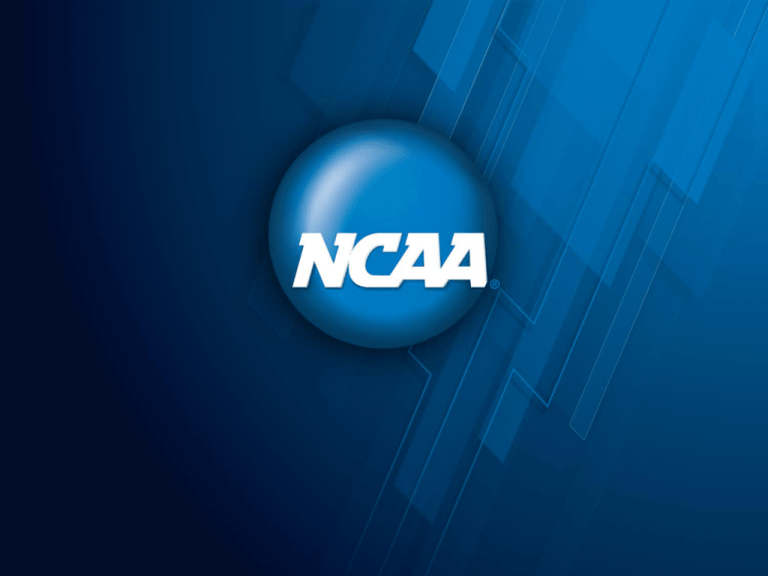The CommitteeS on Infractions Experience
advertisement

Regional Rules 2015 Indianapolis, IN and Denver, CO THE COMMITTEES ON INFRACTIONS EXPERIENCE Session Learning Objectives • Introduction to COIs and OCOI • The Committees on Infractions experience – – – – – Preparing for a hearing Conducting a hearing Deliberating Drafting an infractions decision Monitoring probation • Questions iFACT – Since September 2014, the COIs have heard 16 cases. (Division I – 11; Division II – 2; Division III – 3) Helpful Acronyms • • • • • • • • COI: OCOI: IOP: IAC: NOI: NOA: FI: SD(R): Committee on Infractions Office of the Committees on Infractions Internal Operating Procedure Infractions Appeals Committee Notice of Inquiry Notice of Allegations Factual Information Summary Disposition (Report) PART I: What is the Committee on Infractions ? THE COMMITTEES ON INFRACTIONS EXPERIENCE Committees on Infractions: Three Divisional Membership Committees • Independent administrative bodies charged with deciding infractions cases involving NCAA member institutions and their employees • Comprised of the NCAA membership and general public with legal training – Membership Composition: DI 14 of 18; DII 6 of 7; DIII 4 of 5 • Find facts, conclude whether violations occurred and prescribe appropriate penalties – DI: Penalty Guidelines (Figure 19-1) • Monitor probation and compliance with prescribed penalties Division I COI: 18 members (panels) Greg Sankey, chair John Black, public member commissioner select (Southeastern Conference) (National Federation of State High School Associations) Michael Adams, president emeritus Carol Cartwright, president emeritus (University of Georgia) (Kent State and Bowling Green Universities) Britton Banowsky, commissioner Greg Christopher, director of athletics (Conference USA) (Xavier University) Division I COI: 18 members (panels) Missy Conboy, senior deputy director of athletics (University of Notre Dame) Tom Hill, senior vice president for student affairs (Iowa State University) Bobby Cremins, former head coach Roscoe C. Howard, Jr., public member (Georgia Tech and College of Charleston) (Barnes & Thornburg LLP) Jack Ford, public member (CBS News – 60 Minute Sports) Joel Maturi, retired director of athletics (University of Minnesota, Twin Cities) Division I COI: 18 members (panels) Eleanor Myers, vice chair law professor and FAR (Temple University) Jil Pilgrim, public member (Pilgrim & Associates) Jim O’Fallon, law professor and FAR Sankar Suryanarayan, (University of Oregon) counsel (Princeton University) Larry Parkinson, public member Rodney Uphoff, law professor university (Federal Energy Regulatory Commission) (University of Missouri, Columbia) *The COI has the ability to add up to 24 members iFACT – Ten out of 18 Division I COI members are former NCAA student-athletes. (55 percent) Division II COI: 7 members Julie Rochester, chair, Carey Snyder, associate athletics director FAR (Northern Michigan University) (East Stroudsburg University of Pennsylvania) Doug Blais, professor of sport Harry Stinson III, interim director of management (Southern New Hampshire University) athletics & external operations/compliance (Kentucky State University) John David Lackey, public member Jane Teixeira, associate (Paul & Lackey, P.C.) Bridget Lyons, senior associate commissioner/senior compliance administrator/SWA (Pacific West Conference) director of athletics/SWA (Barry University) iFACT – 5 out of 7 Division II COI members are former NCAA student-athletes; 2 are former coaches. Division III COI: 5 members Amy Hackett, chair, director of athletics (University of Puget Sound) Dave Cecil, associate vice president for financial aid (Transylvania University) Tracey Hathaway, senior compliance administrator (University of Massachusetts, Boston) Gerald Young, director of athletics (Carleton College) TBD, public member OCOI: 7 staff members Joel McGormley, Managing Director • providing the highest level of service to ensure a fair, timely and efficient infractions process • While respecting the boundaries of the committees' decision-making, provide the committees with strategic thinking and the essential tools to reach consistent results • Capitalizing on technological innovation • Lead through precise and effective written communication Shep Cooper, Director Jim Elworth, Associate Director Dino Pollock, Associate Director Matt Mikrut, Assistant Director Cheryl DeWees, Assistant Coordinator Evelyn Gross, Assistant Coordinator PART II: What does the Committee on Infractions do? Prepares for a hearing THE COMMITTEES ON INFRACTIONS EXPERIENCE Hearing Preparation: a committee member’s perspective • NOA triggers “jurisdiction” – Standard in-person hearing occurs six months later • “The Paperless Case” & Leveraging technological initiatives • Reviewing Factual Information (FIs) • Procedural Documents – Responses to NOA (institution/involved individual) – NCAA enforcement staff’s written reply & statement of the case iFACT – A recent infractions case involved over 10,000 pages of record material. PART II: What does the Committee on Infractions do? Conducts a hearing THE COMMITTEES ON INFRACTIONS EXPERIENCE Conducting a Hearing: a committee member’s inquiry • Opening statements – Enforcement staff, institution and involved individuals present general perspective of case • Review of allegations and conduct – Party presentations followed by committee inquiry • Closing statements – Enforcement staff, institution and involved individuals provide final statements of case PART II: What does the Committee on Infractions do? Deliberates THE COMMITTEES ON INFRACTIONS EXPERIENCE Deliberating: a committee member’s consideration and application • Consider the full record and the parties’ presentations • Find Facts • Conclude whether violations of NCAA legislation occurred • Prescribe appropriate penalties, if any – Consider past cases as guidance – Division I: Penalty Guidelines/Figure 19-1 – Division II & III: NCAA Bylaw 19.5.2 • Develop themes and outline infractions decision PART II: What does the Committee on Infractions do? Drafts an infractions decision THE COMMITTEES ON INFRACTIONS EXPERIENCE Drafting an infractions decision: a committee’s consensus decision • Accountability – Infractions decisions should hold the institution and any involved individuals accountable for conduct the panel concluded violated NCAA legislation • Education – Infractions decisions should serve as an education resource for member institutions • Credibility – Infractions decisions should be decided, drafted and produced in a manner that is timely and persuasive iFACT – Infractions decisions model judicial opinions and include high-level introductions, a case’s procedural history, findings of fact, analysis of violations and prescribed penalties, if any. PART II: What does the Committee on Infractions do? Monitor probation THE COMMITTEES ON INFRACTIONS EXPERIENCE Monitoring probation: a committee member’s review • Institution submits annual compliance reports • Details compliance with prescribed penalties • Improvements in education and monitoring systems • COI requests follow-up information or approves iFACT – Over the past year, the OCOI/COIs reviewed 76 compliance reports exceeding 60,000 pages. Questions? THE COMMITTEES ON INFRACTIONS EXPERIENCE

